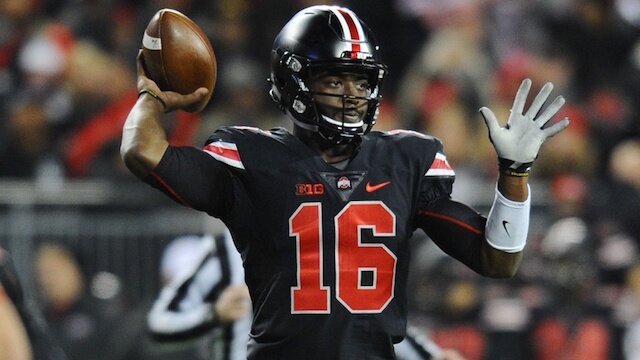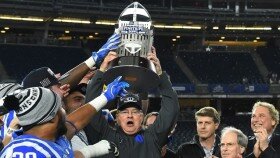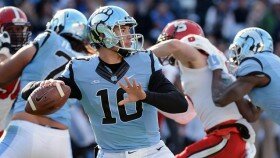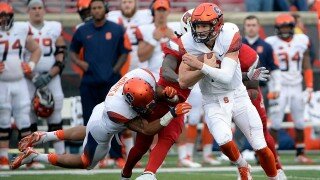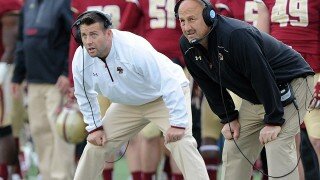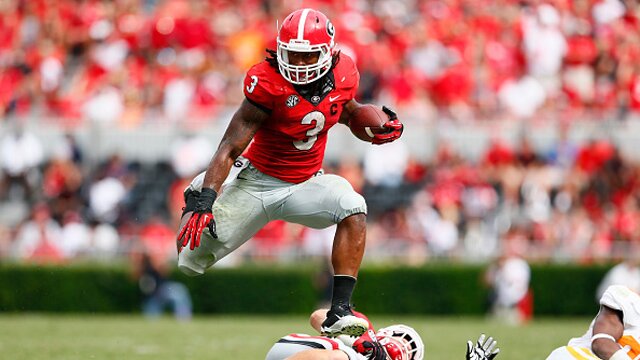
The process of evaluating high school talent for the next level is anything but an exact science. It is difficult to judge the future of teenage boys who have not yet begun to tap their physical potential. The general consensus is that the higher a prospect is rated, the greater the potential in making an impact at the collegiate level. This theory is especially true when it comes to in-state players and a program’s ability to keep these prospects in-state.
The states of Virginia, North Carolina and South Carolina have produced amazing athletes, such as Michael Vick, Julius Peppers and Jadeveon Clowney. Unfortunately, while these talented players stayed to play in their home state, many have left. The inability to keep recruits near home can have disastrous effects for their home state schools. The state of North Carolina’s top six recruits in 2012 included Todd Gurley, Keith Marshall and Germone Hopper, but none of them enrolled at a North Carolina state school. In fact, only one top-five prospect in the state of North Carolina stayed in-state in either 2013 or 2014. Coincidently, no football program in that state has been to a BCS Bowl since Wake Forest in 2007.
This trend provided an opposite result in the state of South Carolina. Clemson and South Carolina football teams had little success in the 1990’s or early 2000’s, but their luck has changed within the last decade. Both schools can attribute their rise in stature to the ability to keep the top s in-state players from South Carolina preps at home. According to Rivals.com,in the last five years, no fewer than two of the top state’s top five recruits have committed to programs outside of the Palmetto state. Prominent Gamecocks or Tigers who played in-state include Marcus Lattimore, DeAndre Hopkins, Martavis Bryant and Clowney. It doesn’t take Tom Luginbill to come to the conclusion that the better a school recruits in-state, the easier it is to win on the field and manage their time more efficiently in regards to out-of-state prospects.
Virginia Tech has encountered little resistance in beating out their in-state rivals the Virginia Cavaliers for the top in-state prospects in the last two decades. The problem the Hokies now face is the influx of out-of-state programs, such as Florida State, that have stolen the state’s elite high school talent. From 2004-09, Virginia Tech only had one year in which they did not receive at least two commitments from the state’s top five players. This list includes NFL talent such as Macho Harris, Tyrod Taylor, Logan Thomas, Nathaniel Adibi, Ryan Williams and David Wilson. That group earned five BCS bowl invitations from 2005 and 2011.
In contrast, the Hokies have struck out the last six recruiting cycles, only receiving a total of four top five in-state recruits, including none the last three years.
The college landscape has changed, along with the business of college football. Despite all the changes, it cannot be disputed that football programs that are unable to secure the top ranked in-state prospects are at distinct disadvantage. These recruits are better geographically located, have influence with fellow prospects, and can be the difference between an average recruiting class or excellent one.
 Share
Share 



